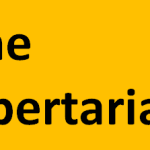A growing consensus is beginning to emerge in opposition to David Cameron’s online porn ban, following the Prime Minister’s announcement of the controversial proposal at the end of last month. The restriction, which would require UK internet service providers (ISPs) to censor pornographic sites by default, will block access to these sites to all UK internet users until they specifically choose to opt out. This way, Cameron argues, the children of Britain will be safeguarded from “corroding influences” online.
The deeper consequences of Cameron’s porn ban

Child Pornography: Who Is Actually Harmed

DISCLAIMER: The author’s opinions and arguments belong to the author alone and are not reflective of The Libertarian publication, its editors, or other contributors.
*Warning: some of the hyperlinks in this article go to video links which depict violent crimes that some people may find distressing.
“Just as every husband needs a wife, every child needs a parent, and every teacher needs a pupil, so every crime needs a victim. Not a potential victim or possible victim or a supposed victim, but an actual victim”
If there is no victim, there is no crime.
Does mere possession of an image harm anyone? What if that image is of a crime, are you then harming anyone? What if you “enjoy” looking at the image of a crime, is someone harmed now? Do any of the preceding questions violate the “Non-Aggression Principle”?
Personally, I feel children cannot consent to sex, and certainly do not consent to having footage of their abuse used by private adults, whether it’s for profit or not. This argument is also true of an assault or murder victim, who also neither consented to their assault, nor to for-profit private networks and YouTube publishing images of their ultimate demise/assault. If the law is to be consistent, why is censorship applied to one victim who did not consent, but not to the other who also did not consent? Inside, I abhor child abuse, as I do child abuse generally, and murder. Yet, one is legally suitable to publish images of while the other it is not. Surely they all are equally abhorrent, aren’t they?
Without entering into the debate of whether a child can or cannot consent to sexual acts, beyond the preceding paragraph, I’d like to explore the issue purely from the perspective that; the state has deemed it illegal for a third party, unconnected to the crime, to possess an image showing that crime.
Does holding a picture, even of a crime, harm anyone?
No. For example: if you watch an evening news article depicting a criminal act, like the 911 terrorist attacks, you watching that crime harmed no one. The actual criminals depicted did the damage. What if you derived some peculiar satisfaction from seeing that crime committed, is anyone now harmed? Again, the answer is no, your state of mind is irrelevant. But, what happens when we replace that crime with another, more abhorrent crime? Does the rule somehow change? No, and that includes an image of a possible crime against a child. It is those depicted in the image, actually committing the criminal act, who may be guilty of harm.
Around the world, millions of news, CCTV and personal cameras capture images of many violent criminal acts, the viewing of which harms no one. Indeed, capturing such images enhances our ability to prosecute those criminals depicted in the footage. Juries view footage of crimes as evidence regularly, are jurors guilty of committing a crime by viewing images? Of course not. What if a juror derived satisfaction from the image, are they now guilty? Again, the answer must be no. If you record, photograph, paint, draw or sketch a picture of a crime from reality, or from your imagination, you are not harming anyone.
Is viewing child-pornography profiteering from a crime?
This is a slippery slope argument: Many private news and media outlets, in their quest for ratings (profit), often show crimes (even occasioning death). Should government censor our private news and media outlets? Not without violating our freedom of speech and expression, among other natural rights. As mentioned above, capturing images of crimes increases our ability to bring those culprits in the footage to justice, often providing key evidence against the criminal who otherwise may have gotten away with their crime.
Availability of child pornography increases the number of paedohphiles.
Claiming: ‘the internet may increase accessibility to child pornography, which increases demand and therefore swells the ranks of actual paedophiles’, is a non sequitur argument. Do we have waves of people invading Germany because of the abundant WWII documentaries produced, or surging numbers of serial killers due to ubiquitous TV programmes featuring real or simulated killing? The answer is no and no. Paedophiles did not arrive on the back of high-speed broadband. Michael Teague, senior lecturer in criminology at the University of Teesside and a former probation worker with sex offenders explains: “One of the most common things I hear is ‘Why has there been this rise?’ The reality is there hasn’t been - it’s always been there but the internet has focused attention and brings it out in a way it didn’t before. We’ve just become more aware it’s there.”
It is undeniable that many paedophiles possess child pornography, for them such images complement their physical acts with the child.
However, on a macro level, does child pornography act more as a complement, or as a substitute, to child abuse? Contrary to popular belief, powerful evidence from the University of Hawaii suggests that decriminalised child pornography may actually to lead to less child abuse, as pornographic images are seen as a substitute for the physical act of abuse itself. Results from the Czech Republic study showed, “… as seen everywhere else studied (Canada, Croatia, Denmark, Germany, Finland, Hong Kong, Shanghai, Sweden, USA), that rape and other sex crimes have not increased following the legalisation and wide availability of pornography. And most significantly, the incidence of child sex abuse has fallen considerably since 1989, when child pornography became readily accessible – a phenomenon also seen in Denmark and Japan.”
Increased control of the internet, and your life, the true aim of government.
The tendency of the state is to expand, to regulate, and to increase its invasion into your private life. To achieve this the state has always sought some practice universally reviled, and pose as the one and only way of expunging it from society. The best example today is child pornography. Governments have always sought to curtail the freedoms, expression and communication of the citizenry, from feudal European Princes’ regulating newspapers in the wake of Gutenbergs’ newly invented printing press, to today’s internet and private Internet Service Providers. Remember, it is the same government seeking to regulate your internet and invade your privacy under the duplicitous pretence of protecting your children, that simultaneously murders children around the word, with your money, and in your name!
“Necessity is the plea for every infringement of human freedom. It is the argument of tyrants; it is the creed of slaves.”
~William Pitt, youngest ever British Prime Minister, Speech in the House of Commons (18 November, 1783).
A Solution?
While decrying the harming of children, it should be noted that even a totalitarian state would struggle to eradicate child abuse totally. There may be no panacea for this issue, but we could do an awful lot more to pursue the actual paedophiles those images may reveal. For example, the “War on Drugs” has been a $Trillion failure. Instead of pursuing, prosecuting and jailing 1,000s of people for the victimless crime of enjoying a chemical high, we could: legalise drugs, ending the failed drug war, freeing up immense police and judicial resources which could be better allocated, like towards apprehending paedophiles and other actually violent criminals.
As with most well-intentioned government regulations, the ones being protected by regulations are often the ones harmed most by them. Professor Amy Adler, in her March 2001 Colombia Law Review article: “The Perverse Law of Child Pornography”, argues:
“… these laws, intended to protect children from sexual exploitation, threaten to reinforce the very problem they attack.”
We all share a common goal: to see as few children abused as possible. The aforementioned study from the University of Hawaii suggests a strong correlation between the decriminalisation of child pornography with decreases in child abuse. Surely this correlation is worth exploring, free from prejudices. “While the study’s authors do not approve of the use of real children in the production or distribution of child pornography, they say that artificially produced materials might serve a purpose.”
This is an emotive topic, and I will do my best to respond to questions from readers. My purpose in writing this article was to:
•Explore the popular logic underpinning these censorship laws; and
•Proffer possible solutions, particularly in light of the University of Hawaii’s study, PDF available here.
Thank you.
Can I watch an adult movie, please?

Dave Cameron makes me feel like a child again. According to his new idea ‘every household in the UK is to have pornography blocked by their internet provider unless they choose to receive it’. This basically means that I have to ask for porn which reminds me of funny old times when I had to hide to watch some naked ladies. That brings so many memories… Continue reading
No sex please, we’re in the European Union
Pornography is a sticky subject. For some it is a shameful business, perpetuating the objectification of women and undermining the moral fabric of society. Broken marriages, corruption of childhood, sex addiction, desensitization of healthy conjugal relations and all manner of other social ills have been laid at its door. Continue reading